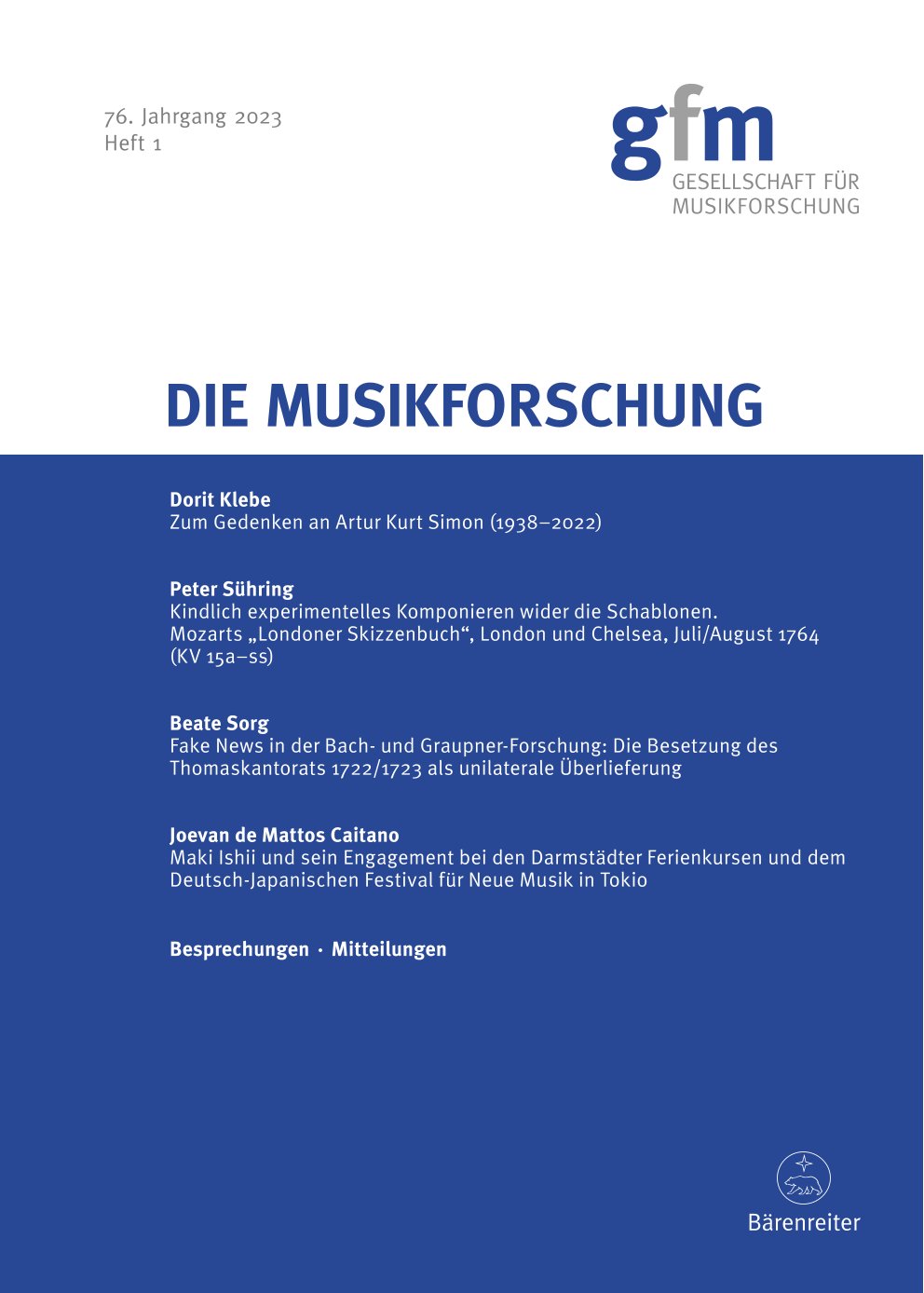Fake News in der Bach- und Graupner-Forschung: Die Besetzung des Thomaskantorats 1722/1723 als unilaterale Überlieferung
DOI:
https://doi.org/10.52412/mf.2023.H1.3082Schlagworte:
Johann Sebastian Bach, Thomaskantorat, Leipzig, Christoph GraupnerAbstract
When the Leipzig position of Thomaskantor became available, following the death of Johann Kuhnau in June 1722, it was first offered to Georg Philipp Telemann, then Johann Friedrich Fasch, and fnally to Christoph Graupner. Several other competitors were rejected, before Johann Sebastian Bach was accepted in the end. This story is well known, and has been reported by musicologists for about two and a half centuries, with different consequences and different intentions. This article gives a short overview of selected publications, hereby showing quite a few errors, and even lies and fraud, that have managed to enter the discourse and to survive until our days. In particular, our example focuses on Ernst Pasqué’s openly fictional depiction, which was published in 1853/1854 in a popular journal, and Wilhelm Kleefeld’s apparently scholarly but in fact fictionalised account published in 1897. Especially an invented letter, in which Graupner allegedly praises Bach as an outstanding organist and composer, has found its way into subsequent scholarship. “Truthiness” or a truth-like feel in what is really invention or fiction, is often found in today’s media – but was actually used in former times as well. Comparing old and new contributions not only reveals scientifc or personal motivations of the authors in their time, but also a playful approach that can give us many new ideas about a well-worn topic.






